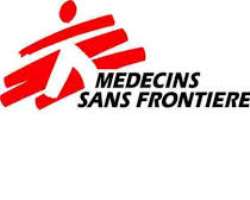Médecins Sans Frontières (MSF) Treats 8,000 Cholera Patients, Vaccinates 332,700 People Against Cholera in Borno, Yobe States

Médecins Sans Frontières (MSF) 's Medical Country Coordinator in Nigeria., Dr Louis Vala, has said that , “MSF had to scale up its activities in Maiduguri and in several other towns in Borno and Yobe states in response to a cholera outbreak that was declared by the Ministry of Health in September 2018,”
He added that , "MSF treated more than 8,000 cholera patients and vaccinated 332,700 people against the disease in 2018 alone".
A statement issued Thursday by MSF Field Communications Manager, Mr. Natacha Buhler through the MSF Field Communication Officer, Abdulkareem Yakubu said in early January 2019, MSF also intervened in Maiduguri to support newly displaced people, providing them with medical support, distributing blankets and soap, and building latrines.
While more than 8,000 people arrived in Maiduguri over a couple of weeks, after fleeing increasing conflict in the north of Borno State.
“The intensity of the crisis and its humanitarian consequences have not diminished while many people who are in need of assistance are not receiving it.”
At the same time, OCHA estimates that 800,000 people are living in areas out of reach of aid organisations. While few hard facts are known about their living conditions and needs, the condition of people arriving from those areas is, in some places, extremely worrying.
An epidemiological study carried out by MSF in September 2018 showed that 8.2 percent of children arriving in Bama since May 2018 suffered from severe acute malnutrition and 20.4 percent had global acute malnutrition –both far above the emergency threshold. These alarming rates most probably reflect the desperate living conditions and acute needs of people living in insecure areas that aid organisations cannot reach.
“The emergency in northern Nigeria is far from over. The nutritional figures we found in Bama in September 2018 are not very different, if not worse, than when the critical nutritional status of the Borno population became public knowledge a couple of years ago, ” says Eguiluz.
“Now is not the time to reduce emergency humanitarian assistance in Borno. People are heavily dependent onexternal help for survival and currently these basic needs remain unmet.
"The population suffers daily from the consequences of the ongoing conflict and it is vital to ensure that they have at least basic assistance, especially in areas outside Maiduguri.”
MSF has been providing lifesaving medical care in northern Nigeria’s Borno and Yobe states since 2014. MSF currently runs projects in Maiduguri, Damaturu, Bama, Ngala, Rann, Pulka and Gwoza, while emergency teams respond to disease outbreaks and other urgent humanitarian needs.
The statement further reiterated that January to September 2018, MSF’s teams in northern Nigeria provided more than 98,000 outpatient consultations; admitted almost 32,000 patients to hospital; treated 6,000 severely malnourished children with outpatient care; and admitted 6,300 severely malnourished children to hospital for inpatient care.
